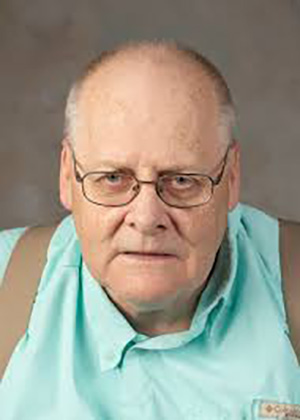By Greg Markley
For the Opelika Observer
Several years ago, the vote was much lower than usual in Tuscaloosa for an election in March. But Alabama’s Secretary of State quickly found out why.
“Normally, a good portion of students vote,” said John Merrill. “But that year the Democratic and Republican primaries were during Spring Break.”
Not even the famed Million Dollar Band could incite students to vote. Merrill is now in his sixth year as the 53rd occupant of his constitutional office. He has seen real progress in voter registrations and in voting itself. He credits his staff and the respective elections officials who are the on-the-scene key in ridding most elections of malfeasance.
In Alabama, 96 percent of eligible African Americans are registered to vote, with 91 percent of eligible whites also registered. The New York Times somehow missed this. CNN’s Anderson Cooper must be chasing another story in muddy waters. But a state with a racist past has only 4 percent of eligible black voters not signed up.
In 2008, 76 percent of blacks who were registered voted. In 2016, 71 percent of all registered voters in Alabama voted. That’s not good enough for NPR?
“Some people say that ‘one vote doesn’t make a difference,’” Merrill said.“But they are wrong.”
The 2018 Clay County Sheriff race was tied after the first vote count, and it was also tied in a recount. Republican Jim Studdard won the contest in a coin toss after he and Democrat Henry Lambert each received 2,680 votes.
This quaint way of getting a winner is legitimate since Alabama law states an election can be resolved through “games of chance.”
Merrill, raised in Heflin, learned politics from his father, a longtime probate judge. Merrill attended court sessions and witnessed how attorneys dealt with cases when he was five. At the University of Alabama, Merrill received a double major—history and politics. He interned for both Congressman Bill Nichols and later for U.S. Senator Howell Heflin.
The Secretary of State’s office has registered 1.6 million new voters, as of Aug. 14, since Secretary Merrill took office on January 19, 2015. In 2020, there are 3.6 million registered voters, including 1.6 million new ones and others who registered before Merrill took over. Putting that in perspective, these new voters represent four times the combined populations of Birmingham and Montgomery (2010 Census).They also represent one-fourth of Alabama’s population (4.9 million). Earlier this year, the 1 millionth person registered electronically.
“Good fellows are a dime a dozen, but an aggressive leader is priceless,” said Red Blaik, a legendary college football coach. (At West Point, Blaik coached for 18 seasons compiling a 121–32–10 record).
Aggressive leaders Nick Saban, Crimson Tide, and Gus Malzahn, Auburn Tigers, proved Blaik’s quote correct: They led one of the most successful voter registration campaigns via a TV commercial encouraging voters to get registered.
Once when casting a ballot, I thought I hadn’t filled in the little checkbox fully. So I blackened the part I missed at first. The election monitor tore up my sheet and gave me a new one. That was a quick solution. Provisional ballots can be voted if a voter is outside of his and her assigned jurisdiction, left off the poll list or if the voter’s name has already been marked off the list for requesting a ballot. To me, provisional ballots are a great idea that allow people with the problems above to eventually vote.
Merrill met John Lewis, the voting rights hero, for the first time in February 2016 in Washington, DC.
“He was a senior congressman and quite busy but John was very generous with his time with me.”
He met Lewis every year since, usually at the Edmund Pettus Bridge reenactment of the 1965 dramatic bridge-crossing in Selma.
“During our many visits together, he always left me wanting to do more to ensure that every person, regardless of race, religion, gender or status, had the opportunity to vote in free and fair elections,” Merrill said. “John Lewis was faithful—and then some—to people who elected him.”
Yet, most of us have voted for candidates who won yet disappointed us. For example, the 2018 Clay County sheriffs race, voting is often a “game of chance” or even a coin toss.
Markley has lived in Lee County for 20 of the past 24 years. An award-winning journalist, he has Masters in education and history. He taught political science as an adjunct in Georgia and Alabama.

